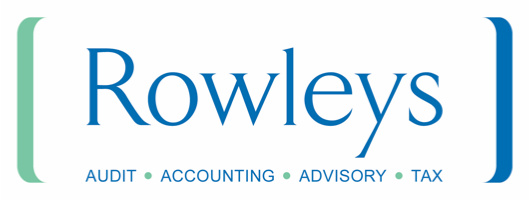News & Events
2024 Budget predictions: Insights from our tax experts
20th February 2024
As the Budget announcement on March 6 approaches, speculation is rife about the fiscal measures the government will unveil to steer the economy forward. At Rowleys, our tax team has been reviewing the current economic and political landscape to provide some insights into what we believe could be on the horizon. Here are our 2024 Budget predictions.
Inheritance Tax reform
While rumours have circulated about the possibility of abolishing Inheritance Tax (IHT), the significant revenue generated by IHT (which is expected to be £7.2 billion in 2023/24), means it’s more likely that we’ll witness reforms aimed at modernising this tax rather than its complete elimination.
Potential changes could include a reduction in the current 40% rate, an increase in the joint allowance for married couples, or adjustments to specific reliefs such as the residential nil rate band.
Tax Partner, Mark Hook, comments, “It may be prudent for individuals to review their inheritance tax planning now, rather than waiting for potential future changes.”
Basic rate income tax reduction
One of the significant expectations is a reduction in the basic rate of income tax from its current level to 17%. This measure would help to alleviate the burden on taxpayers and increase disposable income, helping to address concerns related to the cost of living.
We may also see changes to income tax thresholds and personal allowances which are currently set to remain frozen till 2028. These may be ‘unfrozen’ and increased each year to bring in line with inflation. This measure would be an easy way to tackle ‘cost of living’ crises so people can take more pay home.
High Income Child Benefit Charge (HICBC) abolishment
There is a growing consensus that the government may make changes to the High Income Child Benefit Charge (HICBC). This could be in the form of increasing the existing threshold of £50,000 to £60,000, or even abolish the threshold completely. This move could alleviate the tax burden on middle-income families and simplify the tax system.
National Insurance Contributions (NICs) reduction
Following the recent reduction in employee National Insurance Contributions (NICs) to 10%, there’s speculation about a further reduction, possibly by at least 1%. Such a measure would provide additional relief for employees and employers alike, supporting workforce participation and business growth.
Corporate taxation and Research & Development (R&D) credits
To boost the economy and reduce the tax burden on businesses, we may see a reduction in corporation tax from 25% to 23%. We could also see a change in VAT threshold.
It’s also likely that attention will be directed towards enhancing Research & Development (R&D) incentives.
We know that new rules are coming into force in April 2024 (announced in the Spring Budget 2023), but could there be more changes on the table for Research & Development (R&D)?
The team are hopeful that this could be a much needed period of stability for R&D tax credits after a huge overhaul of the system in recent years. There is the possibility that the changes coming into effect from 1st April 2024 could be delayed for a year to allow companies time to prepare.
Stamp Duty exemption for first-time house buyers
To stimulate the housing market and facilitate homeownership, there could be announcement of an exemption from stamp duty for all first-time house buyers. This measure would aim to make homeownership more accessible, particularly for young adults entering the property market.
There is already an exemption for first time buyers for properties below £425,000. This due to remain until 31 March 2025 when it will revert to £300,000. There could be an increase to the property value and/or make the exemption permanent.
As we await the unveiling of the Budget, it’s crucial for individuals and businesses to stay informed about potential tax reforms that could impact their financial planning strategies.
At Rowleys, we remain committed to providing expert guidance and support to help you navigate these changes effectively. If you have any questions or need advice, please don’t hesitate to contact our friendly team.
Stay tuned for our post-Budget analysis, where we’ll delve deeper into the implications of the announced measures and offer actionable insights for our clients.
